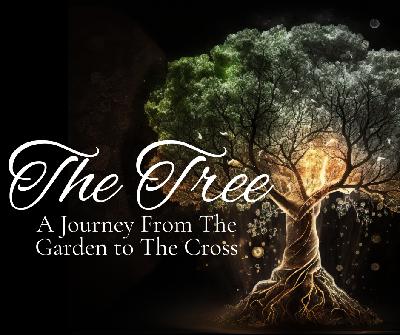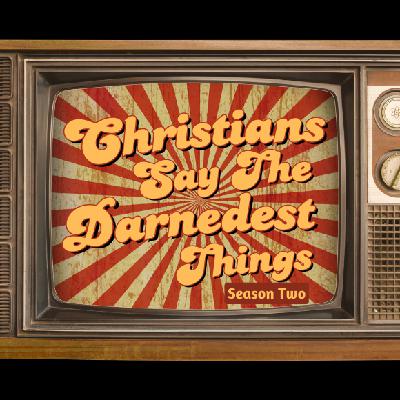Temporal Faith
Description
Imagine for a moment that eternity is like one long and endless rope. At the beginning of that rope is a red section that is about 4 inches long representing your life from birth to death. The average life expectancy for humans globally is 73 years and 78.4 years if you live in the United States. To put that into perspective, 78.4 years is only 28,616 days of life... maybe. The four-inch-long red section of an endless rope is your life.
Seventy-eight years (28,616 days) may sound like a lot of time but consider that 9,450 days of your life is spent sleeping which leaves us with $19,166 days away from birth to death... if we live out our 78 days. Not counting the time we need for sleep, permit me to provide a little perspective:
- If you are 15 years old, you have about 23,141 days to go before your 78th
- If you are 25 years old, you have about 19,491 days to go before your 78th
- If you are 30 years old, you have about 17,666 days to go before your 78th
- If you are 50 years old, you have about 10, 366 days to go before your 78th
- Whatever your age is, don’t forget to consider the 5 hours and 16 minutes spent on your phone each day.
That red mark on that very, very long rope also represents how much time you are in the bathroom, looking for something you lost, hours you spend in education or working, and whatever else that consumes your time. Regardless of the time you think you have left, you might not be here tomorrow.
The entire epistle is James pleading with us not to be so foolish to live our lives with all our language, all our energy, and all of our passion invested in the red portion of the rope. James calls us to live the red part of our lives on the rope of eternity!
So, here’s what I hope to do with the time we share. I want to devote our attention to James 4:13-16, because everything James warns us about stems from his reflections on how brief and delicate our lives truly are. When I say “temporal,” I’m referring to the fleeting and fragile nature of our existence. But before we dive into James 4:13-16, let’s take a moment to explore the verses that come before and after, setting the stage for a fuller understanding.
The Fruit of Temporal Living is a Life Wasted
James cautions us about five pitfalls that people can easily fall into if they live like this life is all there is. The apostle Paul echoed a similar idea, saying that if there’s no resurrection and no hope beyond death, then it would be logical to live just for the moment: “If the dead are not raised, 'Let us eat and drink, for tomorrow we die’” (1 Corinthians 15:32 ). Thankfully, the reality of the empty tomb affirms that what the Bible teaches about life, death, and what lies beyond is true.
If we believe this life is all there is, then it’s logical to chase after pleasure for our own sake. This is the essence of secular hedonism—seeking fulfillment in what is immediate and self-focused, disconnected from any greater purpose. James explains that this perspective grows out of the same source as worldly wisdom, which he describes as “earthly, unspiritual, demonic” (Jas. 3:14 ). In James 4:11 –5:6, he outlines the harmful outcomes that spring from this outlook. Importantly, James directs these warnings to Christians, urging them to recognize and resist these patterns.
Self-centered speech (4:11-12)
Slander is a kind of speech that elevates the person doing it above others—and, ultimately, above the authority of God’s commands. The issue isn’t that Christians should never judge others; in fact, Scripture often calls us to hold one another accountable (see Matt. 7:15-16). Rather, James cautions against speech that tears down rather than builds up, words that fail to encourage others in their walk with God (see Jas. 2:8-10; Heb. 10:24-25).
Self-centered pursuits (4:13-16)
This kind of planning assumes that we are in complete control of our own destinies, confident that we’ll rise to greet the day as we expect. James cautions us against making life plans without seeking God’s guidance, warning that self-centered pursuits often revolve around our own abilities and ambitions rather than the purpose our Creator has for us.
Self-centered responsibilities (4:17 ):
The person who knows, “the right thing to do and does not do it” is the person who lives according to his/her own moral code. For James, this is the Christian whose decisions are shaped by what he/she wants to do over what God’s word has said we must do. Included in this kind of rebellion is the Christian who knows that God is leading him/her into a certain direction, but refuses to yield to God over what he/she wants.
Self-centered riches (5:1-3)
When we adopt the view that this life is all there is, it becomes natural to seek comfort and gain at the expense of others. James speaks especially strongly against those in the church who ignore the needs of the poor to enrich themselves. The issue isn’t money itself—after all, financial resources are vital for supporting missions and ministries. Nor does James condemn Christians simply for being wealthy. Instead, he challenges the relentless pursuit of wealth that disregards the truth that every blessing comes from God, entrusted to us for the purpose of advancing His work and serving those around us.
Self-centered advantages (5:4-6)
Some members of the churches James wrote to were taking advantage of others by withholding the wages rightfully earned by their workers. This injustice stemmed from greed—a desire to live for personal pleasure, placing themselves at the center of their worlds, often at the expense of those around them (v. 5). By refusing to pay the laborers, they not only pursued selfish gain but also acted with disregard and even malice, putting the well-being of the righteous at risk. As James writes in verse 6, “You have condemned and put to death the righteous person...”
The Christian should know better than to live in the sorts of ways James warns us about. These things James lists are grievous sins, and those guilty of such things should not take comfort in a salvation they might not possess. The reason why James uses very strong language is to shock those guilty of such things out of their complacency and toward repentance. There is a judgement coming that we all must be mindful of as we live out our lives here: “For we must all appear before the judgment seat of Christ, so that each one may receive compensation for his deeds done through the body, in accordance with what he has done, whether good or bad” (2 Cor. 5:10 ).
The Fruit of Living in Light of Eternity, is a Life Well Spent
You do not exist for what is earthly, natural, and demonic. You and the life you have today, in the words of James, is only “a vapor that appears for a little while, and then vanishes away” (4:14 ). You are here and then you are gone, and just so you know, that is assuming that you have until your 78th birthday. Who knows what will happen between now and tomorrow, and it assumes that you are going to be here with little to no regard that each moment is an undeserved gift from Almighty God! This is why we are admonished in these verses:
“Come now, you who say, ‘Today or tomorrow we will go to such and such a city, and spend a year there and engage in business and make a profit.” Yet you do not know what your life will be like tomorrow. For you are just a vapor that appears for a little while, and then vanishes away. Instead, you ought to say, “If the Lord wills, we will live and also do this or that.’ But as it is, you boast in your arrogance; all such boasting is evil”
The kind of boasting that is evil is the kind that assumes not only will you be getting up tomorrow, but also the failure to recognize that if you do get up in the morning, that God allowed it because there is a purpose greater than your plans for work, vacation, the honey-do-list your spouse created, or the leisure you crave.
Dear brothers and sisters, if you are a Christian, then the God who created everything found you in your sin and spiritual deadness. The good news is that He not only found you, but He did not leave you to your sin and in your spiritual death! Think about what this means for you! Think about the implications! You were dead, and now you are alive! Listen to the way Colossians 2:13-14 describes what you have experienced: “And when you were dead in your wrongdoings and the uncircumcision of your flesh, He made you alive together with Him, having forgiven us all our wrongdoings, having canceled the certific











